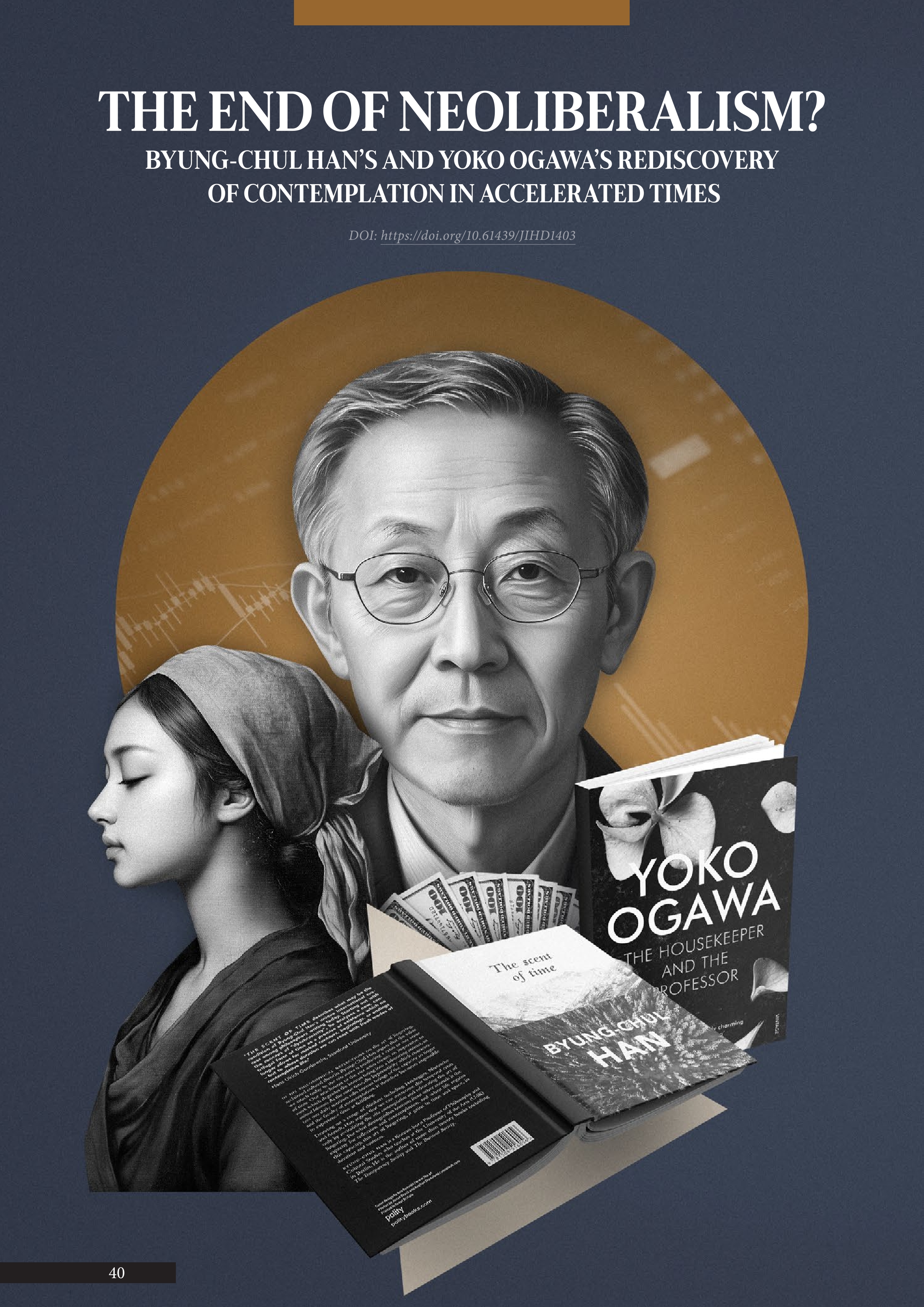The End of Neoliberalism? Byung-Chul Han’s and Yoko Ogawa’s Rediscovery of Contemplation in Accelerated Times
##plugins.themes.academic_pro.article.main##
Abstract
Several critical theorists have suggested that the way out of neoliberal capitalism is to accelerate it in order to force its collapse. In The Scent of Time, German-Korean philosopher Byung-Chul Han calls for a different challenge to neoliberalism by way of a rediscovery of contemplation. Han suggests that contemplation can undercut the vita activa (or active life), which Han blames for the hyper-active neoliberal ways of being and living, as well for the seeming impossibility to end neoliberal time(s). This article examines Han’s thought on contemplation, highlighting his critique of both neoliberal time(s) and acceleration. It expands the scope of Han’s analysis by turning to Japanese author Yoko Ogawa’s novel The Housekeeper and the Professor. Ogawa’s novel revolves around time and memory. Ogawa offers a compelling understanding of contemplation that complicates Han’s thought. Ogawa’s sense of contemplation resists being defined by neoliberal modalities of living even though it often remains stuck in them. This article concludes by asking what it means for neoliberal subjects to allow Ogawa’s contemplation to enter their lives, and what critical possibilities it might bring.

